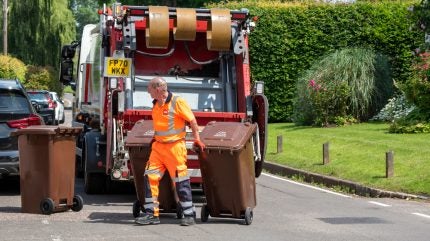
England is set to simplify recycling for households and businesses, with the new system rolling out from March 2026. For years, confusion over what can and cannot be recycled has slowed progress and led to unnecessary waste.
The government’s Simpler Recycling initiative aims to create a consistent, easy-to-understand framework, helping everyone recycle more effectively.

Discover B2B Marketing That Performs
Combine business intelligence and editorial excellence to reach engaged professionals across 36 leading media platforms.
A clearer system for households
One of the main challenges for recycling in England has been the variation between local councils. Different rules have left residents unsure which materials go in which bin, resulting in contamination and lower recycling rates.
Simpler Recycling standardises what households can recycle in their kerbside bins. Items such as paper, cardboard, glass bottles, cans, and certain plastics will be widely accepted, while guidance clearly explains which items should not be recycled at home.
The initiative also introduces uniform bin labels and public information campaigns to help residents avoid mistakes.
Clearer rules are expected to increase participation, reduce contamination, and improve the quality of recycled materials, making recycling more efficient across the country.

US Tariffs are shifting - will you react or anticipate?
Don’t let policy changes catch you off guard. Stay proactive with real-time data and expert analysis.
By GlobalDataSupport for businesses and commercial recycling
Businesses, from offices to restaurants, often face complex recycling requirements. Simpler Recycling encourages a consistent approach across commercial and household waste.
By aligning commercial recycling standards with household collections, waste contractors can process materials more efficiently.
This standardisation also helps businesses reduce costs and meet environmental regulations more easily.
Many companies see adopting these practices as a way to boost sustainability credentials and contribute to wider efforts to reduce waste and carbon emissions.
Moving towards a circular economy
The goal of Simpler Recycling extends beyond convenience. By making recycling more effective, England moves closer to a circular economy, where materials are reused rather than discarded.
Higher-quality recycling means more items can be returned to supply chains, conserving natural resources and lowering emissions associated with manufacturing new products.
Public engagement will be key to the initiative’s long-term success. As households and businesses adopt the new system, England is expected to see higher recycling rates, cleaner waste streams, and a stronger environmental impact.





